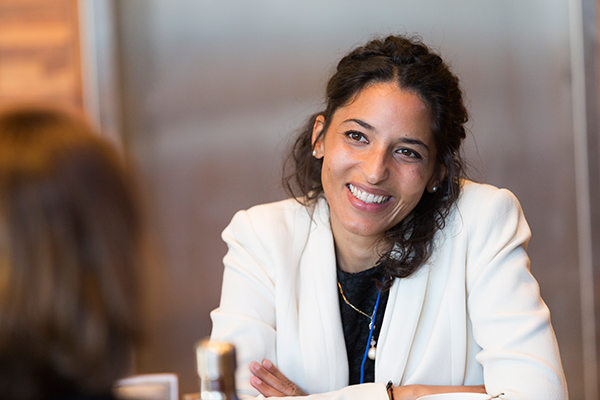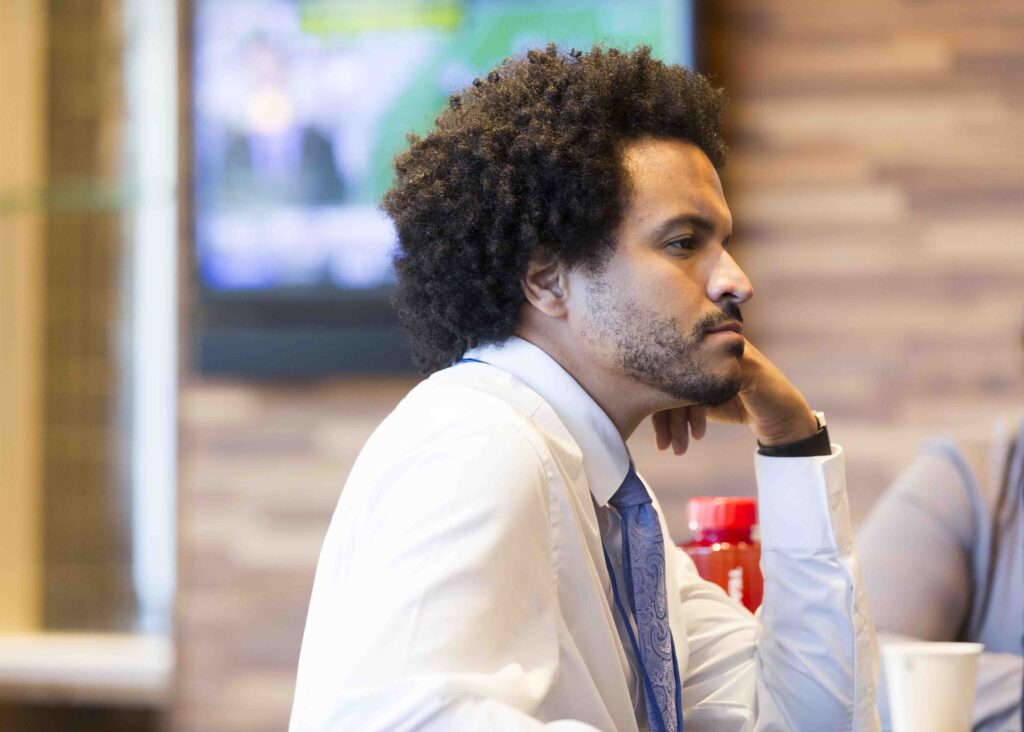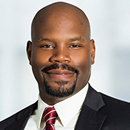In 2016, we launched the Bridge Fellowship, a 12-month residency for leaders with bold ideas for disrupting the inequitable systems and practices that keep too many students from success.
Our first cohort of Bridge Fellows advanced powerful projects to improve outcomes for Black and Latino boys, so we knew when it came time to select our next group, the bar would be high. Fortunately, this year’s applicants didn’t disappoint.
Today, we’re excited to introduce Jonathan Santos Silva and Christine Nieves as the 2019 Bridge Fellows. During their year with TNTP, which begins in January, they’ll work on projects to help more students of color thrive in school—and in life.
We’ll share updates on their work over the next year, but in the meantime, here’s a glimpse at who they are and what they plan to accomplish:
Christine Nieves, Humacao, Puerto Rico

“I have a village backing me up who is ready to take this on with me because we don’t want our children to ever endure the same suffering we did.”
–Christine Nieves, 2019 Bridge Fellow
Originally from Puerto Rico, Christine has dedicated her life to “finding and healing the root cause of systemic violence, pain, and abuse that is self-reinforcing and inhibits our maximum manifestations of human ingenuity, possibility, and compassion.” Working to make this goal a reality, she became a public service TV show host in 2009, focusing on keeping underserved Spanish-speaking communities informed. In 2011, she earned a Master of Science in Evidence-Based Social Intervention at Oxford University, where she discovered a passion for education.
After taking students on a research trip to Puerto Rico and seeing them fall in love with the island, Christine realized her home was calling her. She moved back exactly nine months before Hurricane Maria hit. Co-running a community kitchen in Mariana following the storm, Christine saw “what is at stake for humanity in the absence of bridges that allow us to share wisdom from one generation to the next—and together prepare ourselves for extreme weather events.”
As a Bridge Fellow, Christine will continue working with the community in Mariana to transform an abandoned school building into a sustainable, youth-led community center where students will engage in project-based learning and design solutions to the local challenges caused by climate change. “I have a village backing me up who is ready to take this on with me because we don’t want our children to ever endure the same suffering we did,” says Christine.
We look forward to working with Christine to learn how the education field can better prepare for the growing instances of natural and human-made disasters affecting students, schools, and communities.
Jonathan Santos Silva, Rapid City, South Dakota

“A principal cannot command or direct a school to excellence; it takes vision, partnership, drive, and a healthy dose of humility to go with all of the times you will get things wrong.”
–Jonathan Santos Silva, 2019 Bridge Fellow
“A principal cannot command or direct a school to excellence; it takes vision, partnership, drive, and a healthy dose of humility to go with all of the times you will get things wrong,” says Jonathan.
A career educator and former founding head of a school, Jonathan understands how challenging—yet rewarding—it is to achieve excellence in education. He taught math in South Dakota for two years before pursuing his Master's in Education Administration at the University of South Dakota. Since graduating, he has worked across education championing equity and high standards for Indigenous students.
Currently, Jonathan supports Indigenous school leaders in launching and transforming schools that will better serve Indigenous youth in Pine Ridge, Rosebud, and Standing Rock.
“Indigenous communities in South Dakota need educational proof-points, and they need them yesterday,” says Jonathan. “By virtually every known indicator, Indigenous children in South Dakota (and across the country) perform at rates far below their peers in reading, math, and graduation.”
As a Bridge Fellow, Jonathan plans on addressing the lack of proof-point schools. He’ll spend the year building a transformational leadership institute that will prepare culturally responsive educators and bring students, families, and communities together to incubate ideas for disrupting the educational inequities Indigenous kids currently experience. We hope Jonathan’s project will give us new insights and a fresh perspective on how to prepare school leaders who can simultaneously prioritize cultural relevance and rigorous, data-driven instruction.





